Intel's Core i7-14700K Benchmarked: More Cores, Higher Clocks
Intel's Core i7-14700K will get to almost Core i9-13900K level.
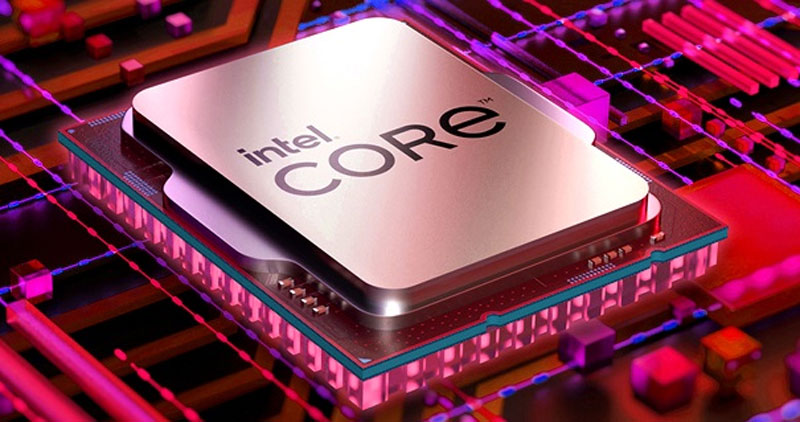
A Chinese reviewer has obtained a pre-production sample of Intel's Core i7-14700K processor, which belongs to the Raptor Lake Refresh family, and tested it in a number of performance benchmarks for his review at Bilibili (via @9550pro). The processor, which got more cores and higher clocks, expectedly beat its predecessors, but what is even more noteworthy is that it can offer performance that is very close to that of the current flagship Core i9-13900K.
Intel's upcoming Core i7-14700K processor will pack eight high-performance Raptor Cove cores clocked at 3.40 GHz – 5.60 GHz and 12 energy-efficient Gracemont cores, which is four cores more than the Core i7-13700K has. The new Core i7 'Raptor Lake' refresh not only got slightly higher boost clocks, but also more cores, which will positively affect its performance in multi-threaded workloads. Meanwhile, the new CPU consumes more power.
| null | Configuration | Base Clock | Boost Clock | PBP | MTP |
| Core i9-13900K | 8P + 12E | 3.0 GHz | 5.80 GHz | 125W | 253W |
| Core i7-14700K | 8P + 12E | 3.40 GHz | 5.60 GHz | 125W | 260W |
| Core i7-13700K | 8P + 8E | 3.40 GHz | 5.40 GHz | 125W | 253W |
Indeed, the Core i7-14700K, which the reviewer calls 'Core i7-13700KS' to avoid problems with Intel, in CPU-Z multi-threaded benchmark by around 20% and in Cinebench R23 multi-threaded test by approximately 14%.
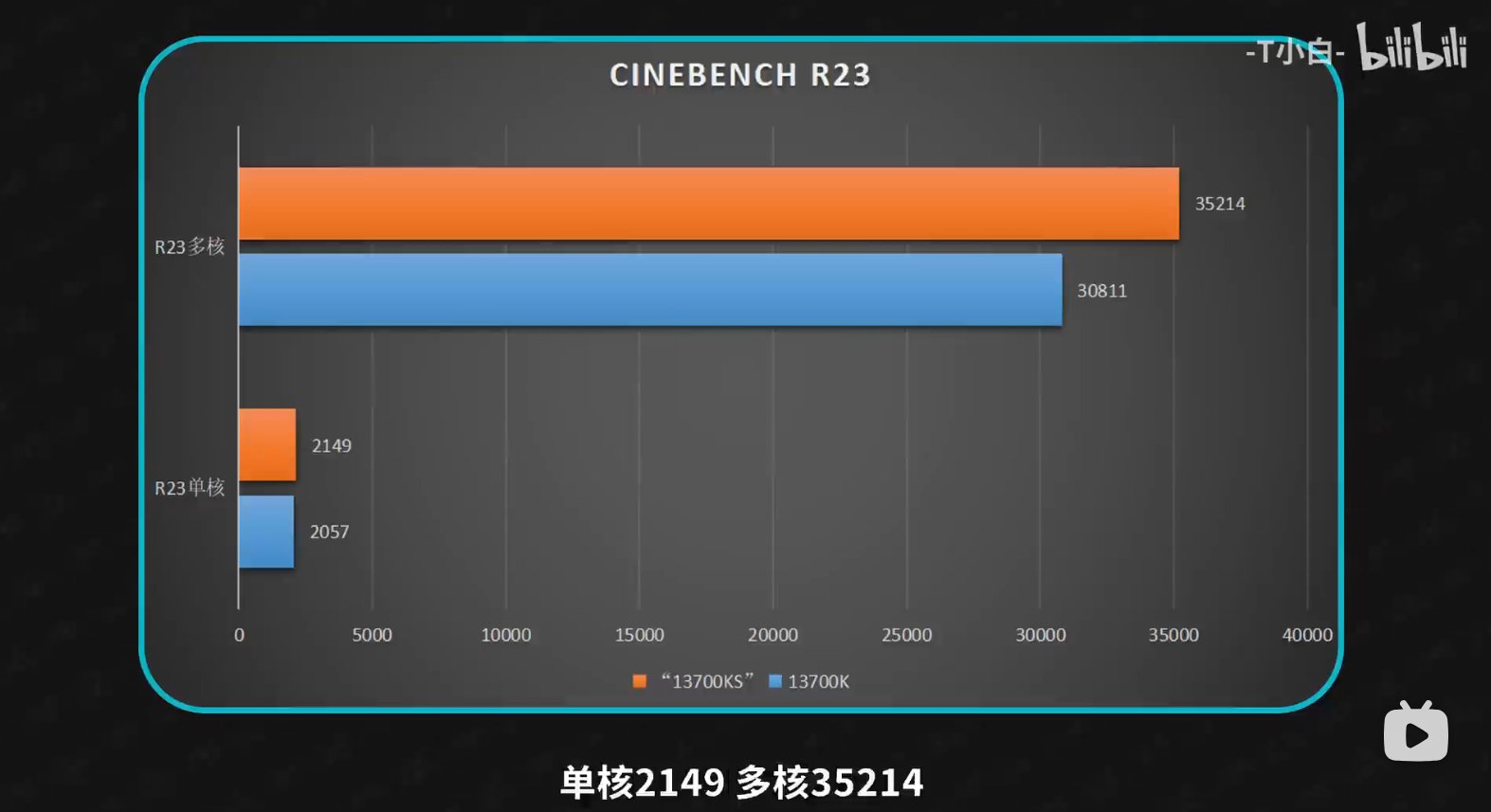
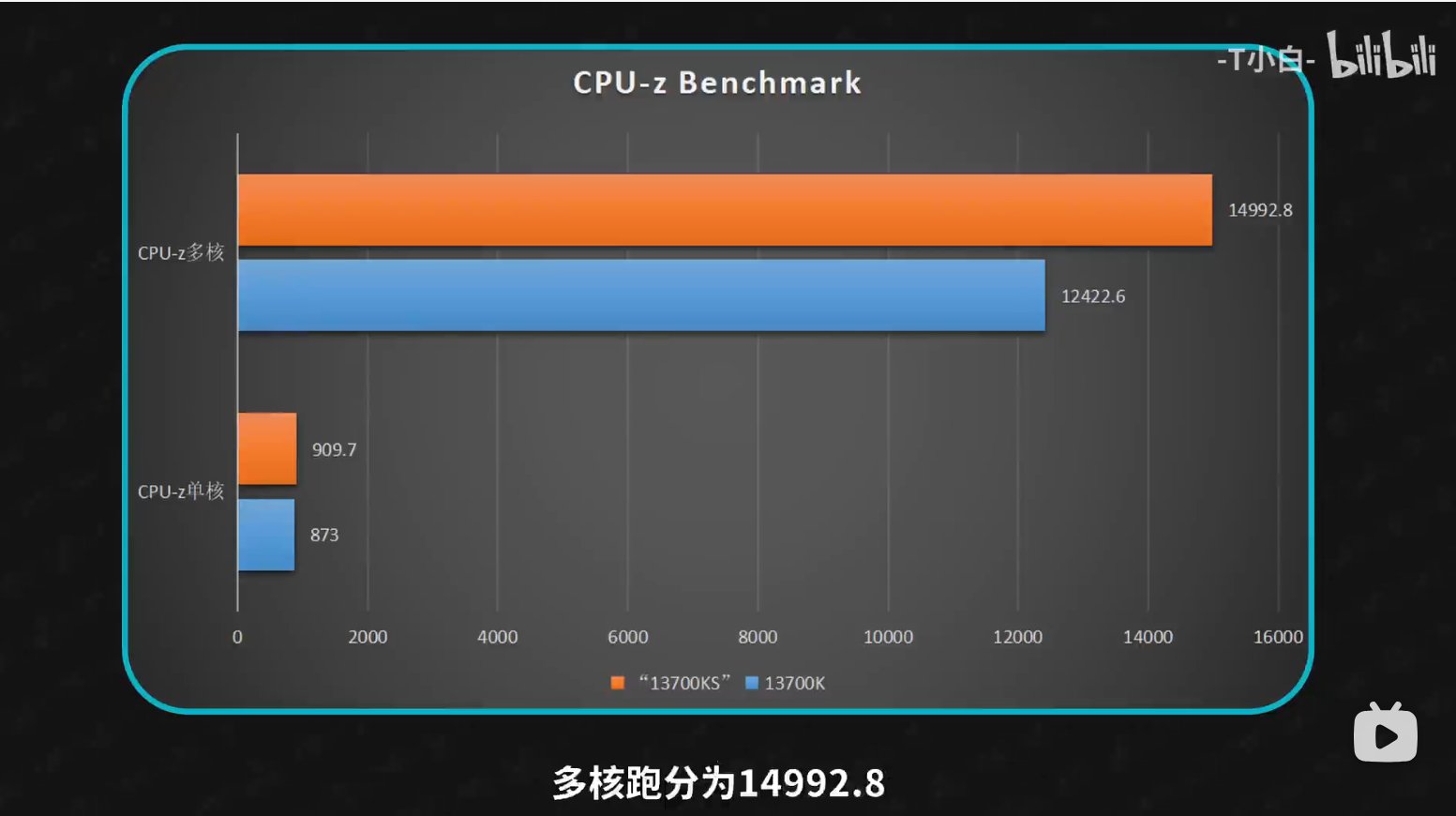
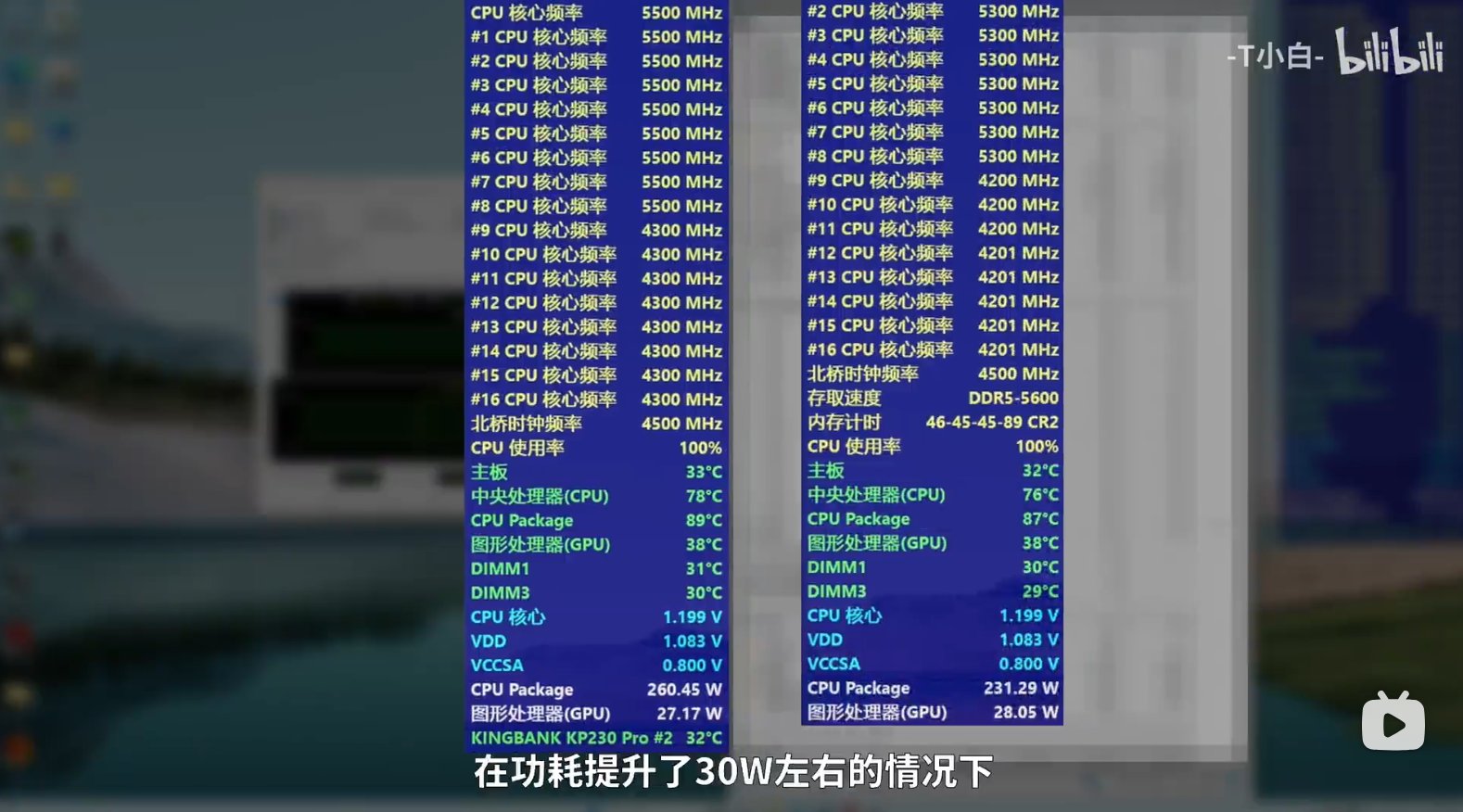
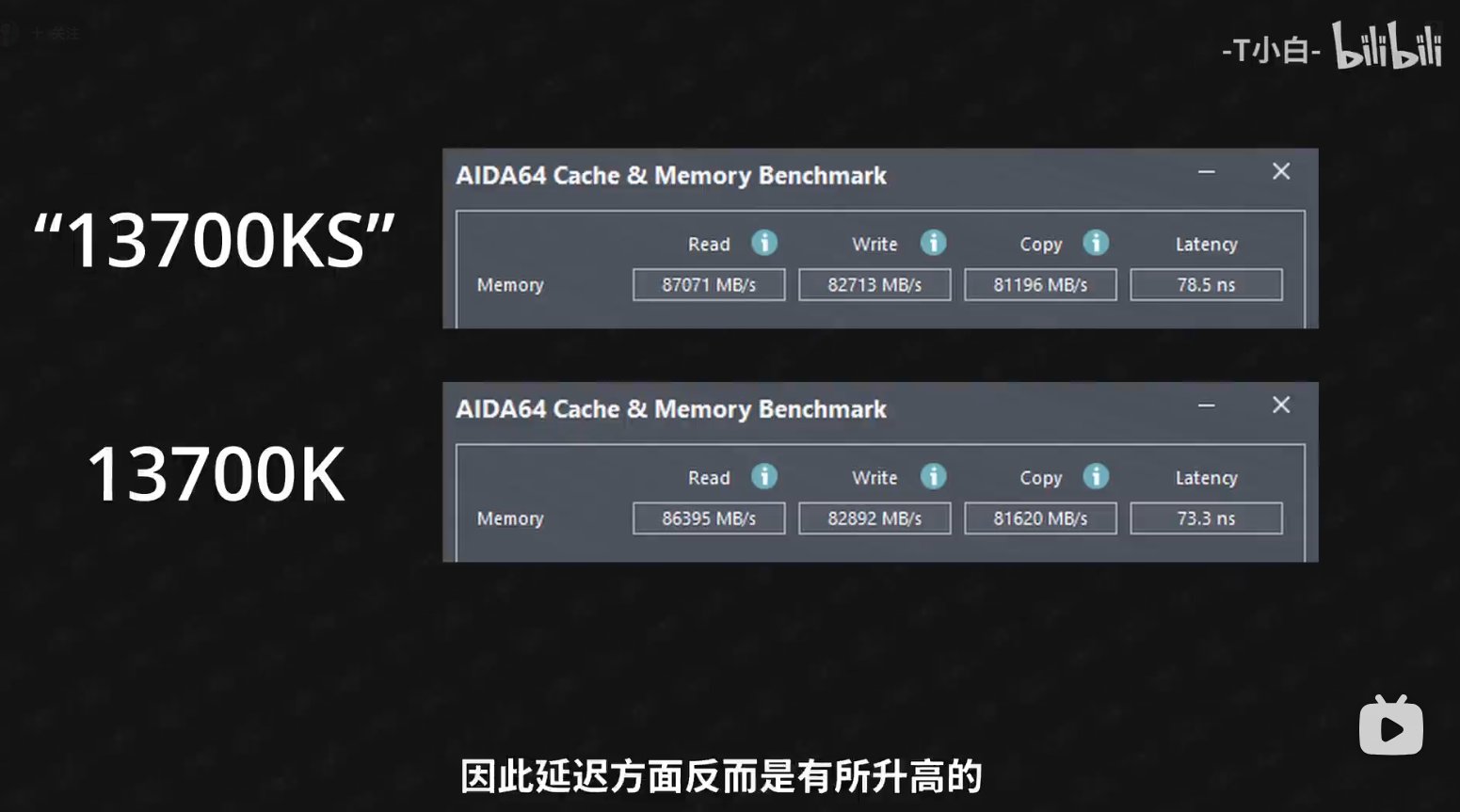
Due to higher clocks and increased number of cores, the upcoming processor also outperforms its predecessor in games.
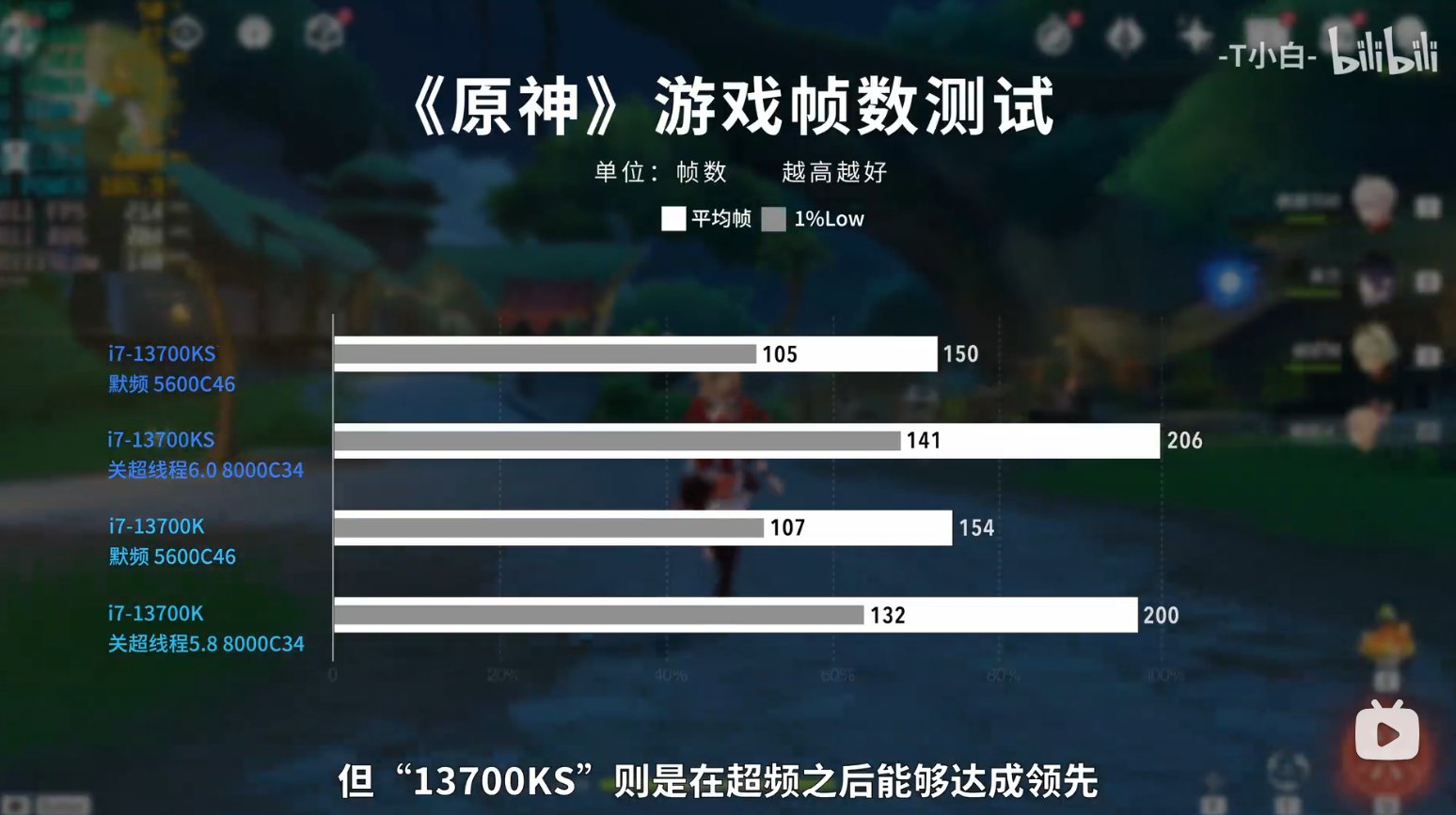
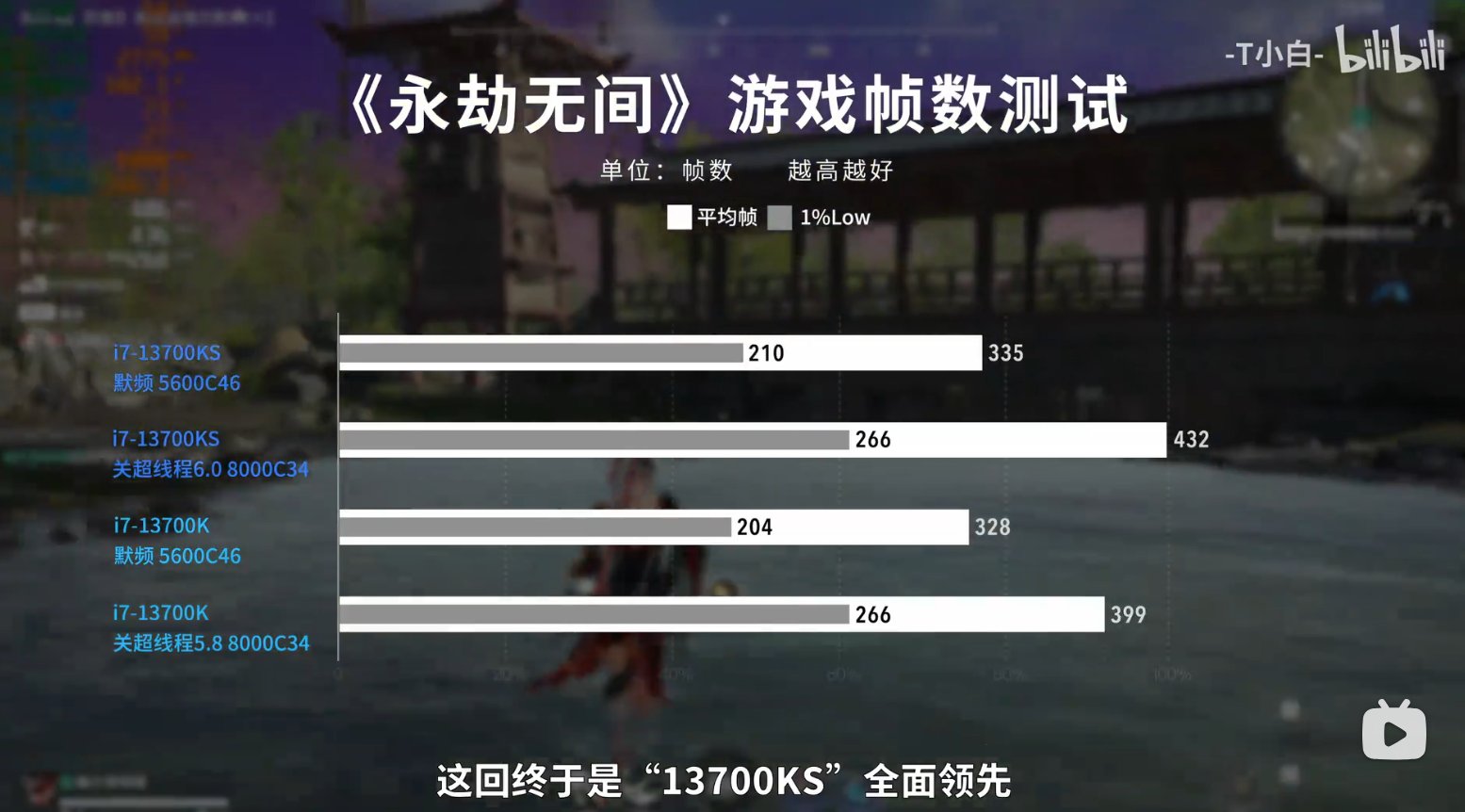
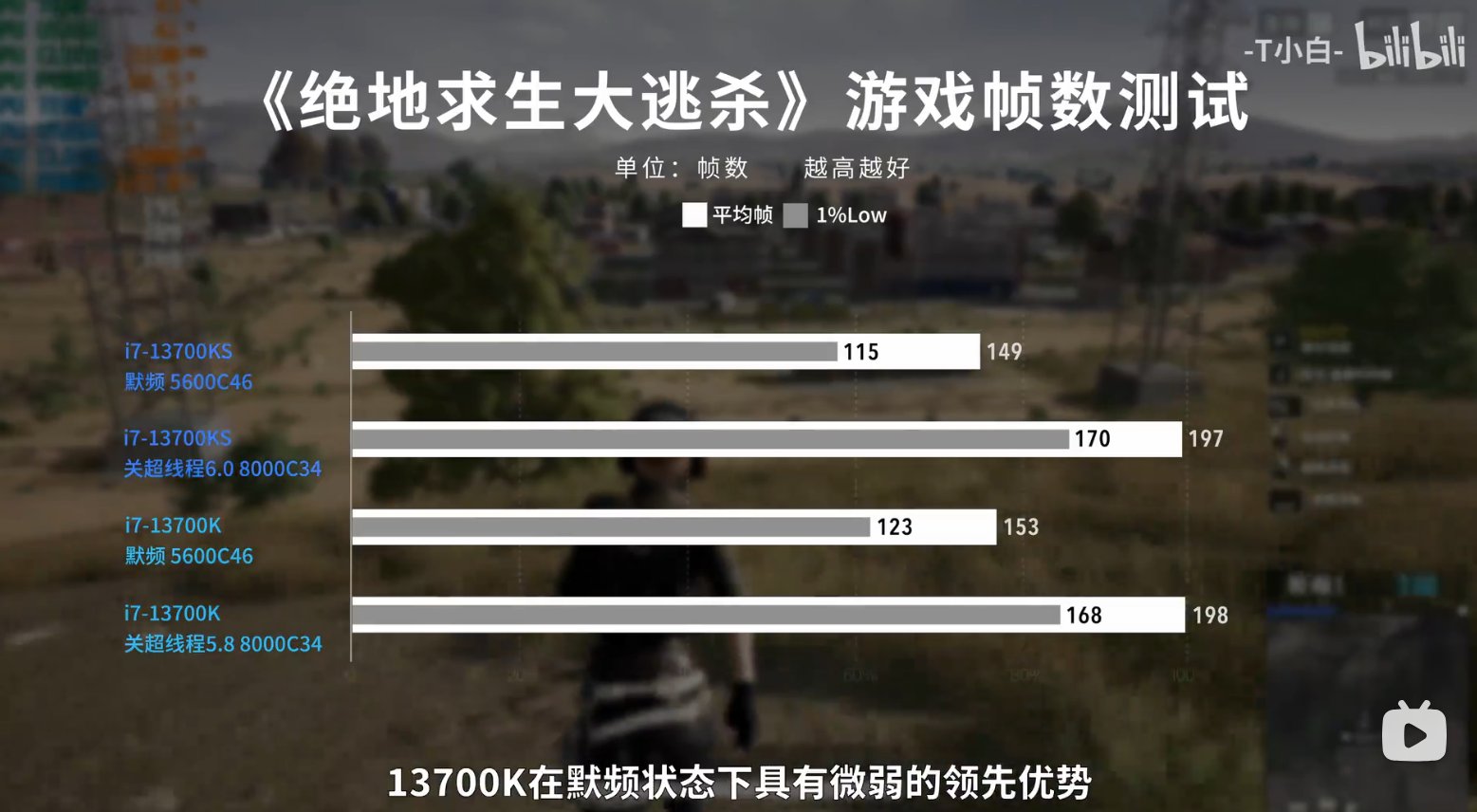
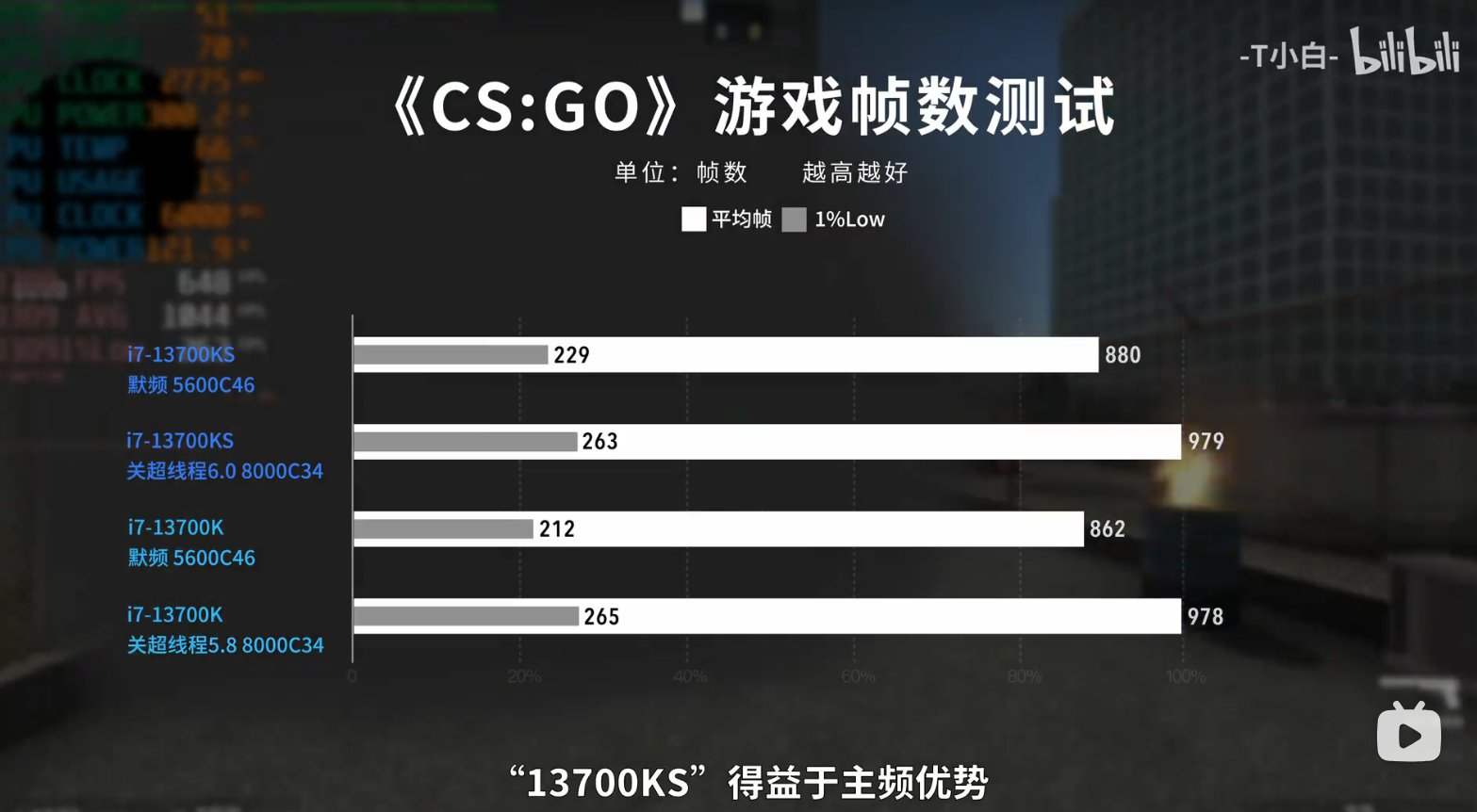
While the reviewer does not compare the Core i7-14700K to the current flagship Core i9-13900K, it has the same configuration of cores (eight high-performance and 12 energy-efficient cores) and very close frequencies (the Core i9-13900K has 200 higher boost clock of 5.80 GHz). Therefore, performance of the new Core i7-14700K will be very close to that of the Core i9-13900K.
Get Tom's Hardware's best news and in-depth reviews, straight to your inbox.
Meanwhile, Intel's next-generation flagship Core i9-14900K and special-edition Core i9-14900KS will have boost clocks of 6.0 GHz and 6.20 GHz, respectively. As a result, performance difference between the most expensive Core i9 parts and moderately priced Core i7 CPUs will likely be negligible in most cases.

Anton Shilov is a contributing writer at Tom’s Hardware. Over the past couple of decades, he has covered everything from CPUs and GPUs to supercomputers and from modern process technologies and latest fab tools to high-tech industry trends.
-
TerryLaze ReplyAdmin said:Intel's Core i7-14700K packs 8P and 12E cores, beats predecessor in all tests.
Intel's Core i7-14700K Benchmarked: More Cores, Higher Clocks : Read moreWhile the reviewer does not compare the Core i7-14700K to the current flagship Core i9-13900K, it has the same configuration of cores (eight high-performance and 12 energy-efficient cores) and very close frequencies (the Core i9-13900K has 200 higher boost clock of 5.80 GHz). Therefore, performance of the new Core i7-14700K will be very close to that of the Core i9-13900K.
https://www.intel.com/content/www/us/en/products/sku/230496/intel-core-i913900k-processor-36m-cache-up-to-5-80-ghz/specifications.htmlThe 13900k has 8+16 cores for a total of 32 threads, not 8+12.
This is the wrong topic to make this comment, this topic is about the 14700 which will get 4 more e-cores increasing its multi performance by quite a bit, depending on if the price changes or not this will be a big bump for new builders.newtechldtech said:So nothing is new here , just rename i9 and call it a new Gen. -
NightLight Reply
Tell me you're a fanboy without telling me you're a fanboy :sleep:newtechldtech said:So nothing is new here , just rename i9 and call it a new Gen. -
peterf28 Will this work with B760 DDR4 mobo? Or will the motherboard be a bottleneck?Reply
Will it be worth upgrading from a 13500? Not now, but maybe in a year or two. -
ManDaddio Reply
That's quite a jump you're talking about. If these chips are still available and they fit in your board then sure it would be a fantastic upgrade. But in two years you probably would be interested in whatever is out then.peterf28 said:Will this work with B760 DDR4 mobo? Or will the motherboard be a bottleneck?
Will it be worth upgrading from a 13500? Not now, but maybe in a year or two. -
ManDaddio Reply
Here's an article I found which might help get some information you're looking for: https://wccftech.com/intel-core-i7-14700k-cpu-with-20-cores-spotted-6-3-ghz-msi-z690-motherboard/peterf28 said:Will this work with B760 DDR4 mobo? Or will the motherboard be a bottleneck?
Will it be worth upgrading from a 13500? Not now, but maybe in a year or two. -
palladin9479 Hmm I think they are going a little to nuts with the crappy "e-cores". Like having four of those around for web browsing / watching media or just generally putzing around the desktop is fine. Stuffing them in there to inflate MC benchmarks is kinda dumb. Like nobody, and I mean nobody, is going to actually be using 12 e-cores, heck 8 is pushing it.Reply -
Giroro So the 14700k performs worse than the 13900k, has lower clocks, and consumes more power.Reply
...So in other words, it's either just a really low bin 13900k reject, or Intel's "refresh" has changes which actually makes their architecture worse in every way. Or the benchmark is bad.
I'll just wait for a real benchmark from somebody more trustworthy. -
ilukey77 yeah i was wondering myself if this 14700k would work in a B760 as i was looking at building a all intel build ( really just for fun nothing more ) ive got the ARC770 but was wondering and looking at a B760 ddr5 board with a 12th or 13th to start with the possibility of the 14700k at some pointReply -
LabRat 891 Please do a little side review:Reply
i7-4770k vs. i7-14700k: What we've gained in 10 generations.